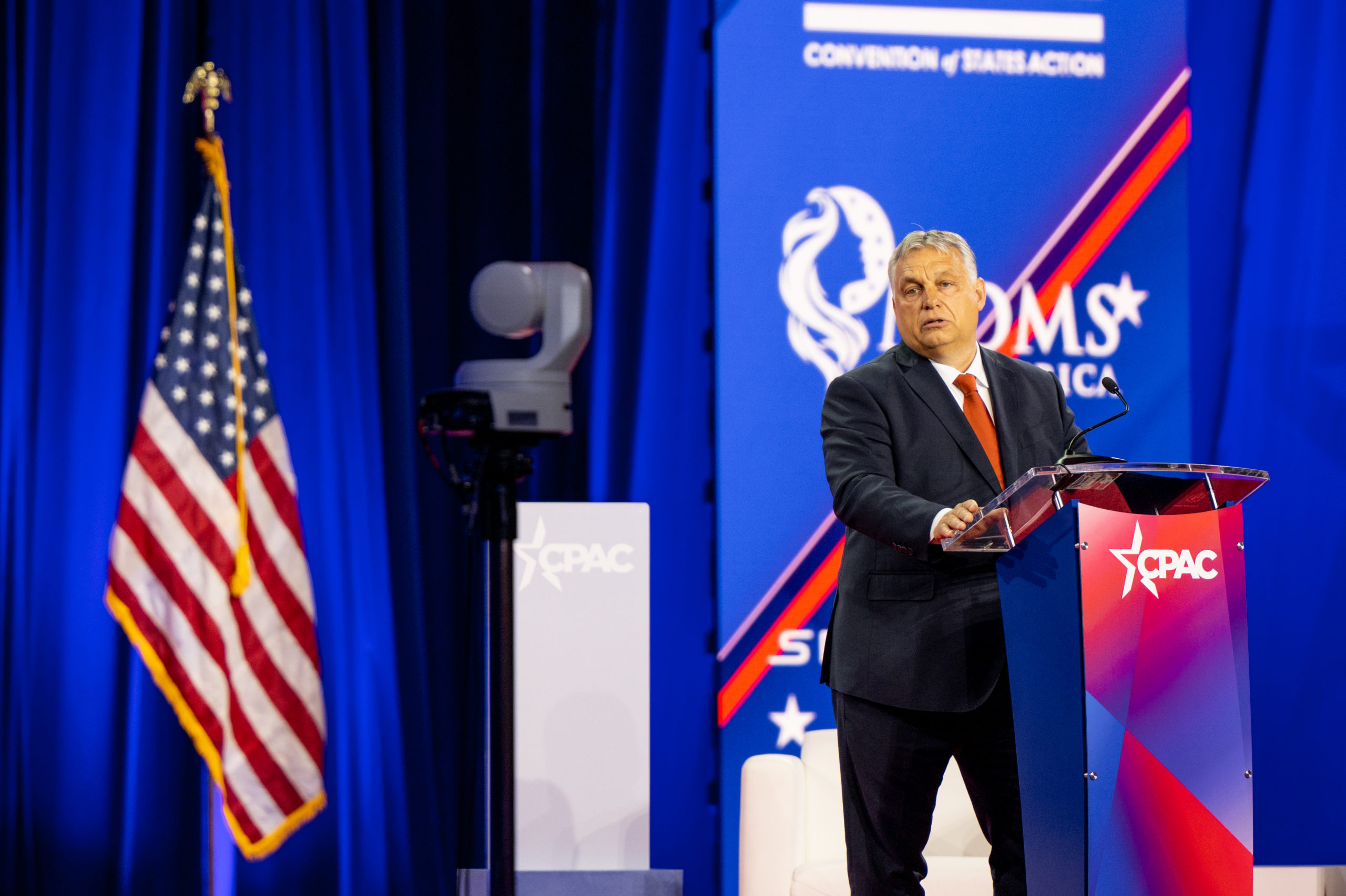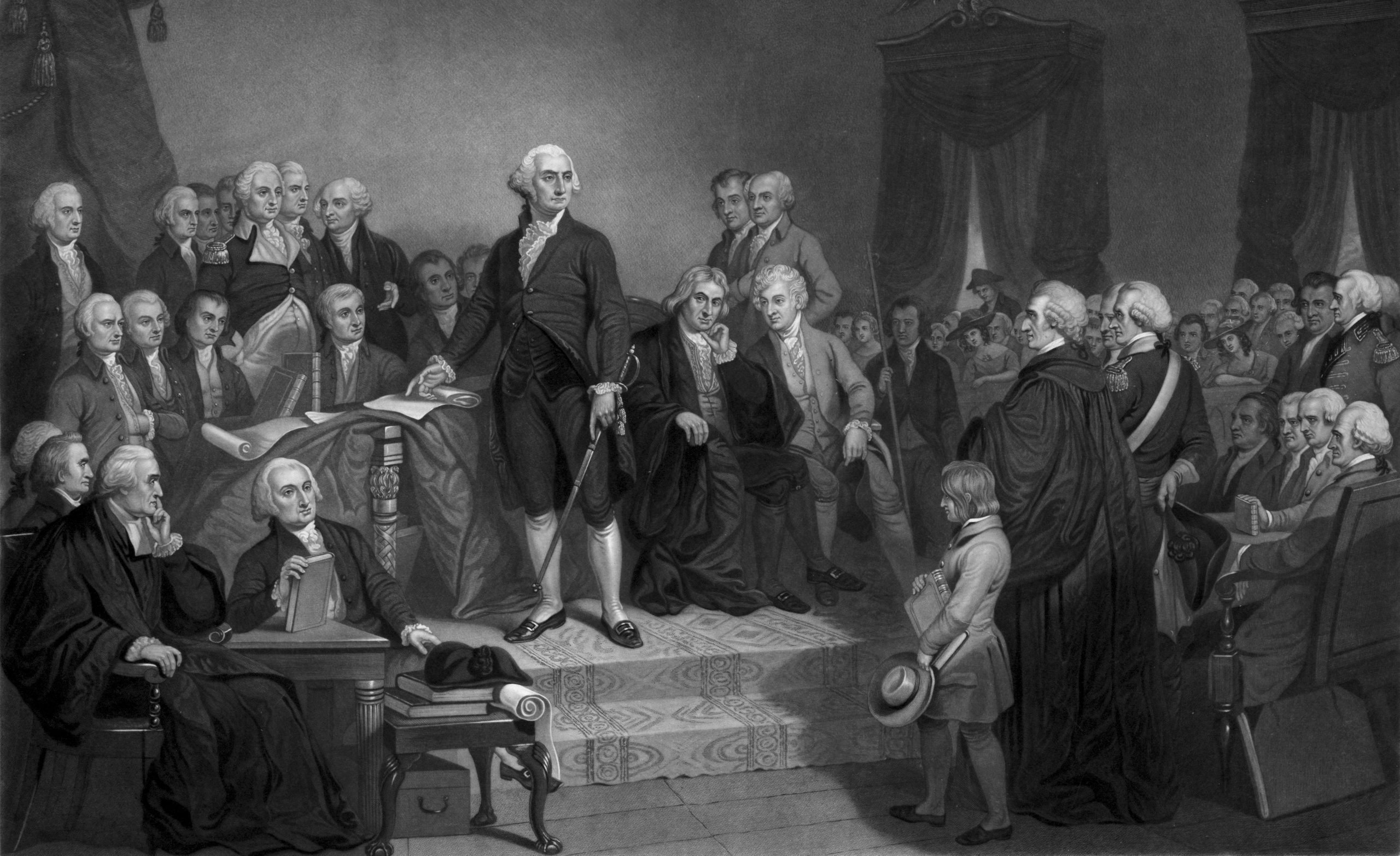On civil war in America and other unpleasant possibilities.
American Orbanism

The controversial critique of European multiculturalism merits attention.
It’s a safe bet that a speech from Hungarian Prime Minister Viktor Orbán will trigger many on the Left, and even some on the Right. His address last weekend, broaching matters of race, was no exception.
“The internationalist Left,” he claimed, “employs a feint, an ideological ruse: the claim—their claim—that Europe by its very nature is populated by peoples of mixed race.” By willfully conflating peoples and races, Orbán suggested, his political adversaries work to undermine nationalism and nations. Contrasting the “mixed-race world” of “European peoples” commingled “with those arriving from outside Europe” against “our world, where people from within Europe mix with one another, move around, work, and relocate,” Orbán concluded that Hungarians, like European peoples throughout history, “are willing to mix with one another,” but “do not want to become peoples of mixed race.”
For critics portraying an inherently multiracial Europe, and denying the reality and legitimacy of peoples, Hungary’s national preferences express an unnatural, even punitive act of racial discrimination. Orbán’s alternative analysis, taking peoples and nations seriously, broaches the topic of race in a manner unapproved by elite opinion-makers in Davos, London, and New York. That by itself is enough to send accusations of racism flying.
European liberals predictably recoiled at Orbán’s now-controversial sentiments. To them, the only white Westerners permitted to talk of race are those who bend the knee to the Left’s racialist creed, convinced the West must purify its blemished past by giving moral authority to movements like Black Lives Matter and to policies like mass immigration from what they had once called the Third World.
No people is more in thrall to this creed than Americans, who have been trained over decades to bristle at any talk of race that deviates from the script, even if it doesn’t mention skin color. Merely bringing up the concept, other than to grovel obsequiously, is a major offense inviting expulsion from polite society.
True, there are American leaders willing to buck the establishment uniparty and cross rhetorical red lines to address the fundamental political issues raised by anti-nationalist ideas and policies. Despite their differences, and varying strengths and weaknesses, their impact has uniformly been profound. Former President Donald Trump disturbed Legacy Republican leaders like the Bushes, but an increasingly multi-ethnic base has responded with breakout momentum to the nationalist language of Donald Trump and his political heirs, centered as it is around their families, communities, and prosperity. Outside politics, and over strong opposition in his own industry, Tucker Carlson has laid out an America-First viewpoint more cogently, and with greater control, than Trump and some of his allies.
These are powerful breaks from the enforced norm, but they are still few. And that is why Orbán cuts such an outsized figure. He has, through free and fair elections, established a degree of legitimate national power and authority no other figure in the West has yet matched. He targeted, and essentially forced out, the subversive Soros-backed NGO network, mere mention of which is, in the U.S., enough to get one’s mic cut off mid-segment. Of all that may be said of Orbán’s government, it is without doubt a people-powered response to the excesses of globalism, multiculturalism, and diversity enforced by the West’s elites—a counterrevolution those elites treat like an existential threat to their hegemony.
And so, when sizing up Hungary’s unlikely prominence, many Americans find a nation that has not lost its will to fight, to preserve itself, and to persist for future generations. From this standpoint, Orbán’s terms in office reflect the strength of his representation of their national values. Beginning at a young age; while others knuckled under, he put his life on the line to fight against communism and liberate his nation as a student activist. Since then, like growing ranks of ordinary Hungarians, Europeans, and Americans, Orbán has learned through decades of experience that Left oligarchy may work well for the corporate elite, but it is not best for the people. The international constituency of today’s nationalists has seen the poorly-harnessed “free” market morph from a producer of wealth to a destroyer of virtue, employed not to strengthen host countries but to dissolve them into a homogenized economic zone rife with inequality and exploitation.
Much of the West, with America in the lead, has fully embraced cultural Leftism. Widespread pornography and queer pride have taken hold. Drug use has become standard, whether via prescription pills pushed by Big Pharma or alcohol and marijuana pushed by the entertainment industry. Vulnerable and impressionable youth, often quietly hurting from the collapse of meaning and identity that would have grounded them just decades ago, are unable to escape the grip of these massive corporate machines. The results have been dire, with anxiety, addiction, and suicidal inclinations now endemic among our youth. Our children have been divorced from the notion of liberty understood by founding-era Americans. Without it, how can they build a society centered around restoring opportunity for families falling by the wayside?
This is exactly why it is necessary to discuss matters of peoples, cultures, and nations actively and openly. The notion that America is just an “idea,” eloquently dispelled by Carlson in recent weeks, is nearly as dangerous a secular heresy as the Marxist ideology it unwittingly empowers. It is a saving grace, not a sin, that the ideas which underpinned America arose out of a people with a distinct culture and heritage, one they maintained through generations of strife and perpetuated through ceaseless and noble effort.
It is a comforting hope that we can imbue even the most foreign of immigrants with the deepest strains of our founding culture and principle. But in today’s America, the stark reality is that they will more likely drift into the vendetta-driven socialism of an Ilhan Omar than take up the hard labor of mastering and living out our highest ideals. The rising rates of violence in cities like Minneapolis reflect that harsh truth. Or consider an Honduran arriving to American shores via a well-funded caravan: quite rationally, he’ll continue to accept the largesse we offer, which society provides every incentive for him to do.
There is no easy solution to these problems. Democrats understand the implications of America’s artificial demographic shift and brag about their success in changing our DNA when they are not calling Republicans racist for noticing. Republicans, for their part, routinely cower at the prospect of being smeared in this way. Vicious cycles of this sort, like civilizational decline itself, are difficult to reverse; our downward spiral is hastening palpably under the current administration. But difficult is not impossible. The only lasting and sustainable solution is a national policy that accepts the lessons learned by Hungary and spoken of by Orbán: incentives for salutary natalism, and penalties for the oligarchic orthodoxy peddled by elite institutions public and private. Today, the focus must be placed on forming new institutions, ones that provide the infrastructure to unwind, and eventually build back from, the failed Leftist power structure.
Such a mission begins on the individual level by talking candidly about culture, nationalism, and the destabilizing, destructive reality of the demographic policies imposed upon us. We are adult citizens, and time is short. Our Hungarian friends have the courage to speak freely. If we find our society short on that virtue, let us begin by culturally appropriating their own.
The American Mind presents a range of perspectives. Views are writers’ own and do not necessarily represent those of The Claremont Institute.
The American Mind is a publication of the Claremont Institute, a non-profit 501(c)(3) organization, dedicated to restoring the principles of the American Founding to their rightful, preeminent authority in our national life. Interested in supporting our work? Gifts to the Claremont Institute are tax-deductible.
Contrary to the Davos consensus, Hungary is not a hotbed of “illiberalism.”
Remarks from National Conservatism II
The Democrats’ appeal to racial resentment is wearing thin.
Bringing tolerance and diversity everywhere, whether they want it or not
The demand to resettle Afghan refugees brings the war home.






